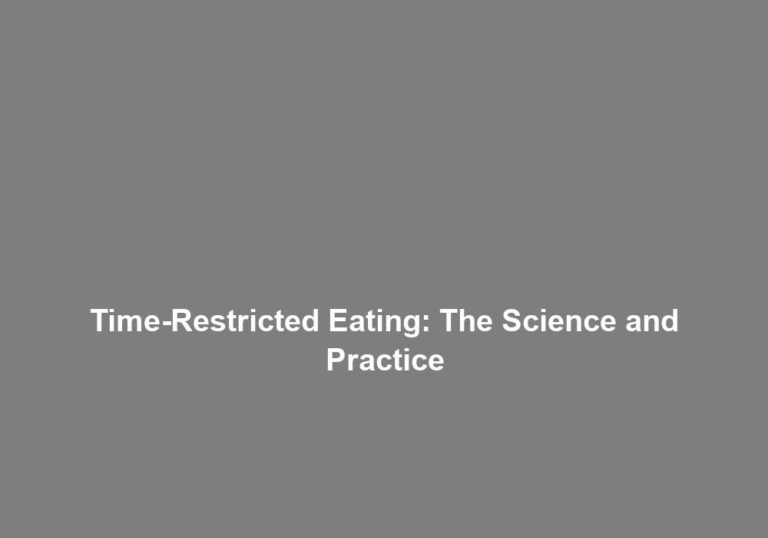Wholesome Bites: Everyday Habits for Vitality
Imagine your body as a well-oiled machine, finely tuned to operate at its best when given the right fuel and care. Just like a car needs regular maintenance and top-quality fuel to perform optimally, your body requires nourishment and daily habits to function at its peak. But what if you could boost your vitality and well-being without overhauling your entire lifestyle? What if small, everyday changes could make a significant difference in your energy levels, mood, and overall health? As you explore the habits and practices that contribute to vitality, youG??ll uncover simple, yet powerful ways to enhance your well-being and feel your best.
Mindful Eating
To cultivate mindful eating practices, start by consciously focusing on the sensations and flavors of each bite during meals. Mindful eating is about more than just what you eat; itG??s about how you eat it. It involves being present in the moment and paying full attention to the experience of eating. By practicing mindful eating, you can develop a greater sense of self-awareness, leading to a deeper connection with your bodyG??s nutritional needs.
Mindful eating is a key component of mindful living, promoting a healthier relationship with food and a greater appreciation for the dining experience. When you eat mindfully, you engage all your senses to fully experience the colors, textures, aromas, and flavors of your food. This heightened awareness can lead to better digestion, improved portion control, and enhanced satisfaction from your meals.
One practical way to incorporate mindful eating into your routine is to minimize distractions during meals. Put away electronic devices, turn off the TV, and create a calm, pleasant atmosphere. This allows you to focus on the act of eating and truly savor each bite. Additionally, chewing slowly and paying attention to the act of chewing can help you become more attuned to feelings of hunger and fullness, preventing overeating.
Balanced Nutrition
To maintain balanced nutrition, itG??s important to include essential food groups in your diet and make nutrient-dense choices. This means incorporating a variety of fruits, vegetables, whole grains, lean proteins, and healthy fats into your meals. By focusing on these key elements, you can ensure that your body receives the necessary nutrients for optimal health and vitality.
Essential Food Groups
Balanced nutrition is essential for maintaining your overall health and vitality, ensuring that you receive the necessary nutrients to fuel your body and mind. When it comes to essential food groups, incorporating a variety of nutrient-dense options is key. Here are some everyday habits for vitality:
- Meal planning: Organizing your meals in advance helps you make healthier choices and prevents impulsive, less nutritious options.
- Portion control: Being mindful of portion sizes can prevent overeating and help maintain a healthy weight.
- Incorporating whole grains: Whole grains provide essential nutrients and fiber, promoting good digestion and overall health.
- Eating a rainbow of fruits and vegetables: Different colors indicate different nutrients, so aim for a diverse range to ensure youG??re getting a variety of vitamins and minerals.
- Including lean proteins: Lean sources of protein are vital for muscle health and overall bodily function.
Nutrient-Dense Choices
Making nutrient-dense choices is crucial for achieving balanced nutrition and supporting your overall vitality. Healthy snacking can provide an energy boost and help maintain stable blood sugar levels throughout the day. Opt for nutrient-dense snacks such as mixed nuts, Greek yogurt with berries, or hummus with veggie sticks to keep you feeling satisfied and energized. These choices not only provide essential nutrients but also support healthy weight management and overall well-being. Nutrient absorption is vital for your bodyG??s functioning, and nutrient-dense foods like leafy greens, lean proteins, and whole grains can enhance this process. By incorporating these choices into your daily routine, you can optimize your nutrient intake and support your bodyG??s natural processes, ultimately contributing to your overall vitality.
Restorative Sleep
Achieving restorative sleep is essential for maintaining overall vitality and well-being. Quality sleep is crucial for physical and mental health, and establishing a bedtime routine can significantly improve sleep quality. Here are some evidence-based tips to help you achieve restorative sleep:
-
Consistent Bedtime: Go to bed and wake up at the same time every day, even on weekends. This helps regulate your bodyG??s internal clock and improves the quality of your sleep.
-
Create a Relaxing Environment: Make your bedroom conducive to sleep by keeping it dark, quiet, and cool. Consider using blackout curtains, white noise machines, or earplugs to minimize disturbances.
-
Limit Screen Time: Reduce exposure to electronic devices such as smartphones, tablets, and computers at least an hour before bed. The blue light emitted from screens can disrupt your bodyG??s natural sleep-wake cycle.
-
Mindfulness and Relaxation Techniques: Engage in calming activities before bed, such as meditation, deep breathing exercises, or gentle yoga. These practices can help relax your mind and body, making it easier to fall asleep.
-
Avoid Stimulants: Limit caffeine and alcohol consumption, especially in the hours leading up to bedtime. These substances can interfere with your ability to fall asleep and stay asleep.
Incorporating these habits into your bedtime routine can lead to improved sleep quality, leaving you feeling more refreshed and energized throughout the day. Remember, small changes can make a big difference in the quality of your sleep and overall well-being.
Daily Movement
Wondering how to incorporate daily movement into your routine for improved vitality and well-being? ItG??s essential to prioritize fitness routines and morning stretches to kickstart your day. Engaging in a morning exercise routine can help boost your energy levels, improve focus, and set a positive tone for the day. Consider activities such as yoga, Pilates, or a quick bodyweight workout to get your blood flowing and muscles warmed up.
In addition to morning movements, integrating an active lifestyle with evening walks can significantly contribute to your overall well-being. Taking a brisk walk after dinner not only aids in digestion but also provides an opportunity to unwind and de-stress after a long day. Research shows that walking can enhance cardiovascular health, strengthen bones, and improve mood. Aim to explore different walking routes to keep things interesting and prevent monotony.
To make daily movement a consistent part of your routine, itG??s important to find activities that you genuinely enjoy. Whether itG??s dancing, cycling, hiking, or swimming, the key is to engage in physical activities that bring you joy. By incorporating fitness routines, morning stretches, and evening walks into your daily schedule, youG??ll be taking proactive steps towards enhancing your vitality and overall well-being.
Stress Management
After incorporating daily movement into your routine, itG??s crucial to focus on effective stress management strategies to maintain overall vitality and well-being. Stress relief and relaxation techniques are essential for promoting mental wellness and emotional balance. Here are some practical tips to help you manage stress and cultivate a sense of calm in your everyday life:
-
Mindfulness Meditation: Take a few minutes each day to practice mindfulness meditation. Focus on your breath and observe your thoughts without judgment. This practice can help reduce stress and improve emotional balance.
-
Deep Breathing Exercises: Engage in deep breathing exercises to activate the bodyG??s relaxation response. Simply taking a few deep breaths can help calm the mind and reduce stress levels.
-
Physical Activity: Regular exercise not only benefits your physical health but also plays a crucial role in managing stress. Engaging in activities such as yoga, walking, or dancing can help alleviate tension and promote relaxation.
-
Healthy Sleep Habits: Prioritize getting adequate and restful sleep. Establish a relaxing bedtime routine, create a comfortable sleep environment, and aim for 7-9 hours of sleep each night to support emotional well-being.
-
Connection and Support: Cultivate meaningful connections with others. Spending time with loved ones, seeking support from friends or a therapist, and expressing your feelings can contribute to emotional balance and stress relief.
Incorporating these stress management strategies into your daily routine can help you navigate lifeG??s challenges with greater ease and maintain a sense of vitality and well-being.
Hydration Essentials
You know that staying properly hydrated is essential for your overall health and vitality. ItG??s not just about drinking water; itG??s about ensuring your body has enough fluids to function optimally. In the upcoming section, weG??ll explore the importance of water, its impact on your health, and some practical hydration tips to help you stay healthy and energized.
Importance of Water
Staying properly hydrated is essential for maintaining optimal bodily functions and overall vitality. Hydration benefits include supporting digestion, nutrient absorption, and temperature regulation. It also helps in maintaining healthy skin and joint lubrication. To ensure adequate water consumption, try these practical tips:
- Carry a reusable water bottle with you throughout the day.
- Infuse your water with fruits or herbs for a refreshing twist.
- Set reminders on your phone or use apps to track water intake.
- Consume water-rich foods such as cucumbers, watermelon, and oranges.
- Aim to drink a glass of water before each meal.
Hydration and Health
Maintaining proper hydration is essential for overall health and vitality, supporting various bodily functions and promoting overall well-being. When it comes to hydration essentials, itG??s not just about water intake, but also about maintaining electrolyte balance. Electrolytes, such as sodium, potassium, and magnesium, play a crucial role in ensuring that your bodyG??s cells function properly. HereG??s a practical guide to help you stay hydrated and maintain electrolyte balance:
| Hydration Tips | Benefits |
|---|---|
| Drink water | Supports bodily functions |
| Eat hydrating foods | Provides essential nutrients |
| Monitor urine color | Indicates hydration levels |
| Consider electrolyte drinks | Helps maintain balance |
| Set a daily goal | Keeps you accountable |
These simple habits can help you achieve optimal hydration and support your overall well-being.
Hydration Tips
To ensure optimal hydration and electrolyte balance, it is crucial to incorporate practical habits into your daily routine, including monitoring your water intake and consuming hydrating foods. Hydration techniques and water intake play a vital role in maintaining your overall well-being. Here are some simple yet effective tips to help you stay properly hydrated:
- Carry a reusable water bottle with you throughout the day.
- Set reminders on your phone or use apps to prompt regular water intake.
- Infuse your water with fruits or herbs to add flavor and encourage consumption.
- Consume hydrating foods such as cucumbers, watermelon, and oranges.
- Limit intake of dehydrating beverages like alcohol and caffeinated drinks.
Conclusion
Incorporate these wholesome bites into your daily routine to nourish your mind and body. Just like a well-balanced meal, each habit plays a vital role in your overall vitality. Think of these habits as different ingredients coming together to create a delicious and nutritious dish. By incorporating mindful eating, balanced nutrition, restorative sleep, daily movement, stress management, and hydration essentials, youG??ll set the stage for a healthier and more vibrant life.







